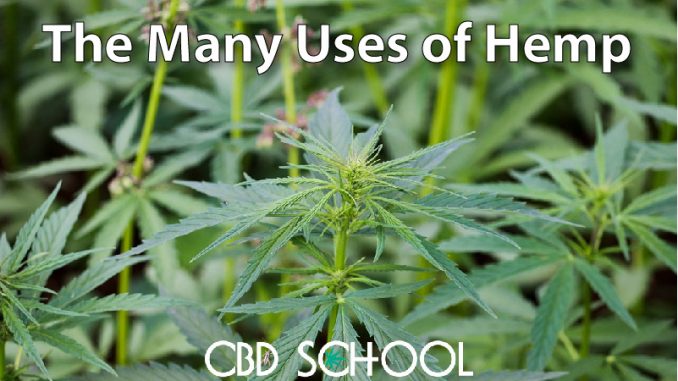
[ad_1]
Industrial hemp plants (cannabis Sativa) are grown and used in many different products. Industrial hemp has many uses in everything from food, health food products, rope, fabric, natural remedies, and so much more! Hemp is super versatile because manufacturers use different hemp plant parts to make various products.
Literally, the whole plant is useable from the hemp fiber, hemp stem, hemp stalks, hemp seeds, and more!
This article will discuss the various uses of hemp and its nutritional properties. Keep in mind; some people may experience side effects or have an allergic reaction to taking hemp.
As always, talk to a doctor before you take any new food product.
Does Hemp Offer Any Benefits?
Hemp Cannabis Sativa is a renewable resource. This means hemp grows quickly, and the commercial production of hemp products can happen more often. No wonder hemp has become a popular product in everything from replacing wood pulp in the building industry to utilizing the hemp stems for animal bedding.
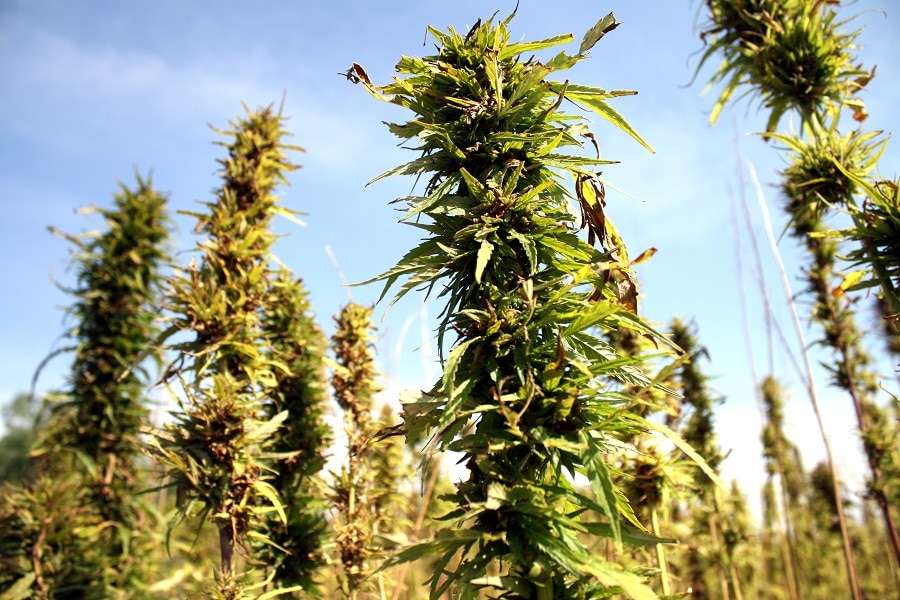
Still haven’t heard of hemp? Perhaps you know hemp by some of its other given names:
Narrow-leaf hempCatchflyBitterrootMilkweedIndian hempWild Hemp or Wild Cotton
Whatever name you know it by, there are three different plants under the Cannabis genus (or Cannabaceae family). The three plants are Cannabis sativa, Cannabis indica, and Cannabis Ruderalis.
The hemp variety of cannabis contains 0.3% THC or less. In comparison, marijuana varieties will have more than 0.3% THC. THC (Tetrahydrocannabinol) is a psychoactive compound found in cannabis Sativa that gives a person that “high” feeling.
Hemp’s edible parts are found in hemp seeds and hemp leaves. While the hemp leaves can be used to make tea, the hemp seeds are the main edible part of the plant since they contain most of the nutrients and are used the most.
Let’s explore more about what makes hemp seeds so popular.
Food Products Made From the Hemp Plant
There are several food products made from the hemp plant. Here are a few:
Hemp Seeds
Hemp seeds contain over 30% fat. They are rich in omega-3 fatty acids and omega-6 fatty acids, essential for heart and skin health. Highly nutritious, they contain high amounts of dietary fiber as well. You can’t walk into a health food store without seeing hemp seeds, hempseed oil, hemp hearts, or hemp used in several health products.
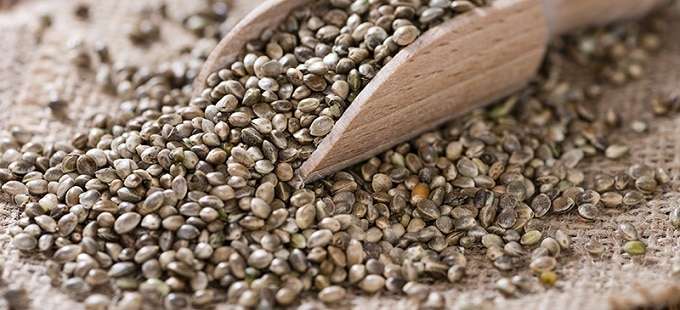
Don’t confuse hemp seeds with hemp hearts. Hemp hearts have had the shell of the hemp seed removed, leaving only the inner soft part of the seed. Hemp hearts are sold separately from hemp seeds and have also gained popularity among health enthusiasts as a great source of protein.
Hemp seeds are exceptionally high in both soluble and insoluble dietary fiber. While the soluble fiber dissolves in water, the insoluble kind doesn’t, and both types are essential for digestion. Since hemp hearts have had the fibrous shell removed, they have less fiber than whole hemp seeds.
Hemp seeds provide a ton of nutritional benefits. Studies have shown hemp seeds to be beneficial for heart health due to the high amounts of rich fatty acids. These fats also provide anti-inflammatory properties for the body. Another study shows hemp seeds may be beneficial for brain health.
Western diets rely heavily on omega-6 fatty acids found in foods like vegetable oils and eggs.
However, the lack of omega-3 fatty acids is the problem, and not enough of it is consumed daily. Consuming hemp seeds and a standard diet will help provide omega-3s and added protein, vitamins, and minerals.
How To Eat Hemp Seeds
Hemp seeds are a very versatile food. You can eat them raw or roasted right out of the bag. You can also use them with other foods in many cooked dishes. A quick browse online will reveal thousands of dishes using hemp seeds. Here are some of the more popular ways to enjoy eating hemp seeds:
Blended in a smoothie.On oatmeal or cereal.Sprinkle the raw or roasted seeds over salads.Blended as nut butter.Made into hemp milk.Seeds sprinkled on yogurt.As an ingredient in protein or granola bars.Blended with oil and vinegar and spices to make a salad dressing.Sprinkle over casserole dishes.Add the seeds to baked goods.As a cooking oil to replace other oils like vegetable oil.
What Does Hemp Taste Like?
The taste of whole hemp seed can be mild or nutty flavored with a soft texture. When roasted, the seeds make a nice crunchy snack as the outer shell becomes a little crispy. Hemp hearts are soft a chewy and have the same nutty flavor.
Hemp Protein
Hemp protein is manufactured from hemp seeds and is available in powder form. These protein powders contain all nine essential amino acids, which are the building blocks of protein. Hemp protein is a viable choice for vegetarians and vegans due to the product containing essential fatty acids.
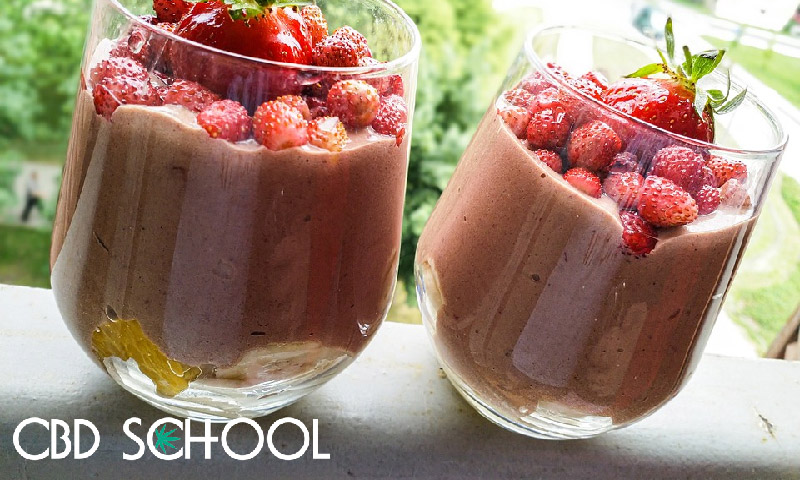
Even though whole hemp seeds contain roughly 25% protein (much higher than flaxseed or chia seed), they may be lower in amino acids than soy protein. Regardless, adding some hemp protein powder to your day is an excellent way to get some extra protein.
Storage and Care of Your Hemp Products
Like any other food product, hemp seeds need to be stored properly. Hemps seeds contain healthy fats that may degrade over time if exposed to air or light for long periods. Avoid storing hemp seeds next to excessive heat sources that will break down the fats and make the seeds rancid.
The best way to keep your hemp oil and hemp seeds lasting longer is to store them away from light and heat in an airtight container. Once opened, store the products in the refrigerator to help them last longer. Products like hemp milk must also be stored in the fridge once opened.
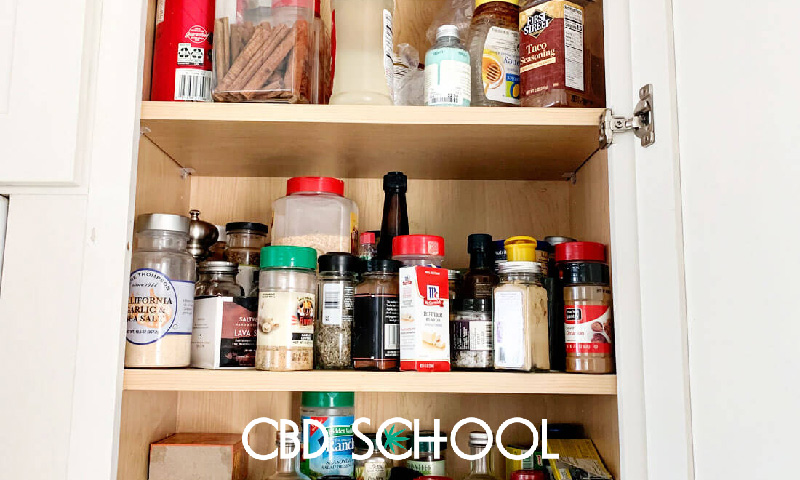
If you’re using hemp seeds or hemp seed oil in cooking, avoid heating them over temps of 350 degrees F. If heated above that temperature, it may destroy the healthy fatty acids. It is best to eat hemp seeds raw, but if you decide to use them or the oil for cooking, use low heat.
Other Health Benefits of Hemp Plants
Always get professional medical advice to see if taking hemp is a safe and effective way to help treat a medical condition. The entire health benefits of hemp plants have not had enough clinical research. Many companies make claims on their products with no actual data to back them up.
Always look for third-party lab-tested products like some of the best brands that we have reviewed on CBD School. Make sure these products have a Certificate of Analysis (COA). This certificate will contain all pertinent information on the product, such as nutrition, ingredients, and more.
Regardless of company claims, people stand by hemp as a remedy to many illnesses, including:
ArthritisAsthmaBloatingCoughHeart problemsLower blood pressurePneumoniaSyphilisUrinary problemsWarts (as a topical applied to the skin)
Possible Side Effects of Taking Hemp Products
Hemp can be used to provide nutritional benefits for the body, but what about the potential side effects of hemp? Some of the more typical negative side effects of taking hemp include:
Irritation of the throatDiarrhea or digestive issuesNausea and vomitingSlower than average heart rateHypertension (high blood pressure)
There haven’t been enough studies conducted on the safety of taking hemp.
It is recommended that pregnant or breastfeeding people avoid consuming hemp, and some people may have an allergic reaction to using topical hemp products.
Hemp Oil, Hemp Seed Oil, and CBD Oil
There is so much confusion about the terms “hemp oil,” “hemp seed oil,” and “CBD oil.” And many companies use the terms interchangeably or mislabel the products altogether. Let’s take a look at the different terms and what they mean.
Hemp Seed Oil
Cold-pressing hemp seeds make hemp seed oil from the hemp plant. Hempseed oil is much different than CBD oil. This type of oil does not contain the calming and relaxing benefits found in CBD. Instead, hempseed oil has more nutritional benefits such as fatty acids for heart health, brain function and to help reduce inflammation.
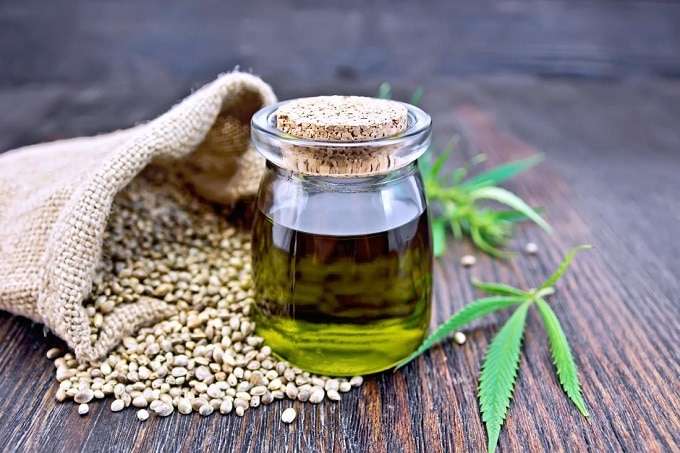
For many, hemp seed oil is an excellent ingredient for cooking, making salad dressing, spreads and dips, since it contains the following healthy nutrients:
Proteins.Essential fatty acids (EFAs)Zinc, magnesium, calcium, iron, and other minerals.Antioxidants
Hemp Oil
Hemp oils are different than hemp seed oil as they contain CBD and can only be sold in states that recognize the legal cultivation, manufacturing, selling, and purchasing of CBD.
Hemp Oil is made by extracting the hemp oil out of the flower of the hemp plant and not the seed. Hemp Oil contains a wide range of different cannabinoids, one of which is often CBD. The other major cannabinoid present in hemp oil is THC, but only at the legal limit of 0.3% THC.
CBD Oil
CBD oil is extracted from the hemp plant and other cannabinoids, flavonoids, and terpenes combined with carrier oils like MCT oil, olive oil, or even hemp seed oil to make CBD tinctures, CBD capsules, and edibles.
These CBD products are meant to provide a calming effect on the person. The CBD industry has toted the many health benefits of CBD to reduce stress and anxiety. Studies have found that CBD can treat anxiety disorders and provide a soothing effect for a better night’s sleep.
Selecting the Right Hemp Products
Whole hemp seeds are grown all over the world. With the many hemp varieties available, people stick with some favorites. Many prefer Canadian hemp as a high-quality hemp source for a wide variety of different food products.
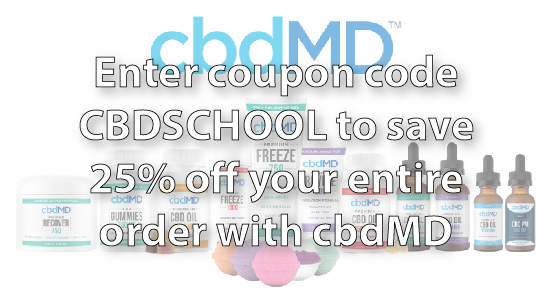
Buying hemp requires some research to find the best products. It is essential to look for third-party lab-tested products for quality and purity. Some countries have different standards for the quality of hemp than others. You should be able to contact the hemp manufacturer if you have any questions at all about the hemp products you wish to buy.
Some Common Hemp Questions
Here are some more of the common questions regarding hemp, and hemp-based items, that we run into.
Are Hemp Seeds Legal to Ingest in the U.S.?
Yes, hemp seeds are legal in the U.S. Cultivated, and processed hemp seeds must contain a minimal to zero amount of THC. According to the Food And Drug Administration (FDA), some hemp products are deemed safe to ingest, including:
Hemp seedsHemp seed protein powderHempseed oil
Can The Eating of Hemp Show up on a Drug Test?
No. Eating hemp and products made from hemp-like hemp seed oil, hemp protein powders, whole hemp seed, or hemp hearts will not appear on a drug test. Hemp and all products made with hemp contain trace to zero amounts of THC.
Read more about drug testing and hemp
However, if you use other cannabis plant varieties like marijuana or eat substantial amounts of hemp, it is improbable that you will fail a drug test. Even CBD products made from the cannabis plant contain minimal THC. However, stick to CBD isolate if you wish to avoid taking THC altogether, as CBD isolate contains zero THC.
Other Products from Hemp
Even though hemp is mainly used for food, the hemp plant can be utilized for several other non-food-related products, from animal bedding to home construction. Here are some other products from hemp:
Hemp Housing
Since 70% of the industrial hemp plant’s total weight comprises hemp hurds. Hemp hurds is the inner woody core of the plant. This strong and durable cement-like hemp product is used in building materials to construct houses.
The result is something known as hemp-crete. It’s like concrete, but much lighter, and much, much stronger.
Hemp Fiber
Industrial hemp has another use—hemp Fibre (or fiber). Rediscovered in the late 1980s, producing hemp for fiber is still a viable industry. Mainly because growing these slender plants requires very little fertilizer and zero pesticides. There is no other natural resource like hemp, and this strong, hardy, and versatile plant is perfect for making hemp fibers.
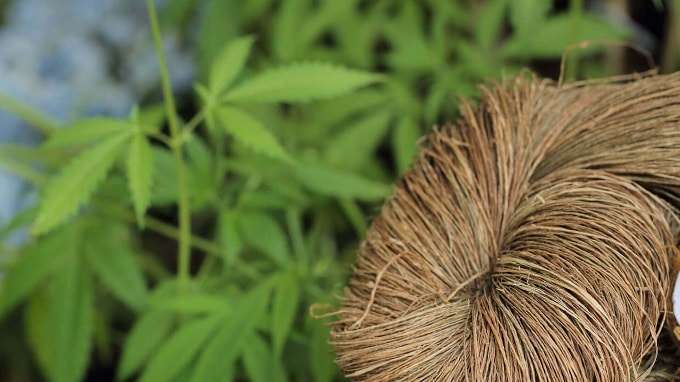
Hemp fibers are naturally unaffected by water. Plus, hemp fibers are strong and durable and last much longer than other fibers like synthetic fiber. Here are some of the primary uses for hemp fiber:
Hemp ropeHemp sackingHemp carpetHemp nets and webbing.Hemp clothingHemp paper
Hemp Plastic
As more and more people become environmentally aware, companies are finding ways to reduce the carbon footprint of their products. Many are getting on board with producing and promoting hemp plastic. Everything from cars to electronics can benefit from utilizing hemp plastic.
Although not a popular product yet, the future looks bright for hemp plastic.
Hemp paper
Another widespread hemp use is as an alternative to wood pulp. Hemp grown for paper is slowly becoming a strong use for hemp crops. Since hemp requires less effort than other fiber crops, hemp production for paper is making a mark in the paper industry.
Fuel
Fuel can be a by-product of hemp (cannabis plant) cultivation. One possible fuel that could be made from hemp would be biodiesel. This is because of the rich oils found in the seeds and stalks of the industrial hemp plant. Another possible fuel made from hemp would be biofuel because of the fibrous hemp stalks.
The Future of The Industrial Hemp Plant
The Domestic Hemp Production Program was established to provide guidelines for maintaining records about the land where harvesting hemp and hemp cultivation occurs, testing the levels of THC of the hemp varieties, licensing hemp producers, and much more for the hemp industry.
Although hemp remains a relatively new industry, this versatile plant is making a name for itself, with health enthusiasts, food companies, and other companies using hemp as a viable resource and an alternative to other products. Will hemp cultivation take over other industries like cotton and lumber? As the planet deals with climate change, perhaps hemp will be the best solution to a more sustainable world.
[ad_2]
Source link

Soyez le premier à commenter